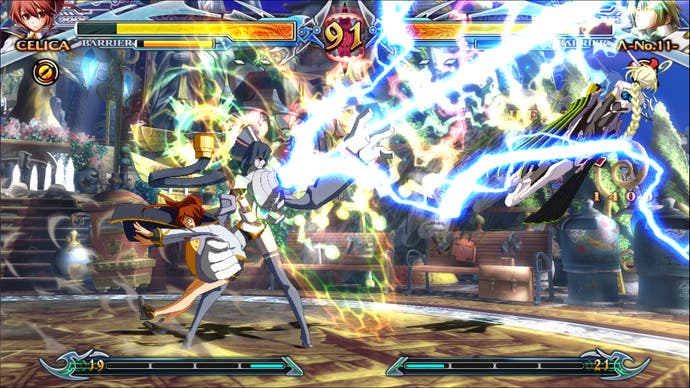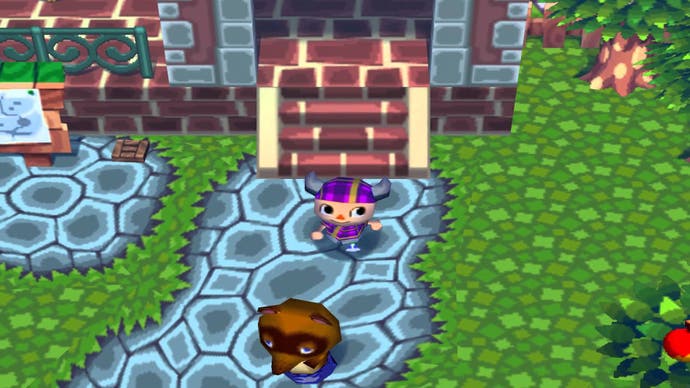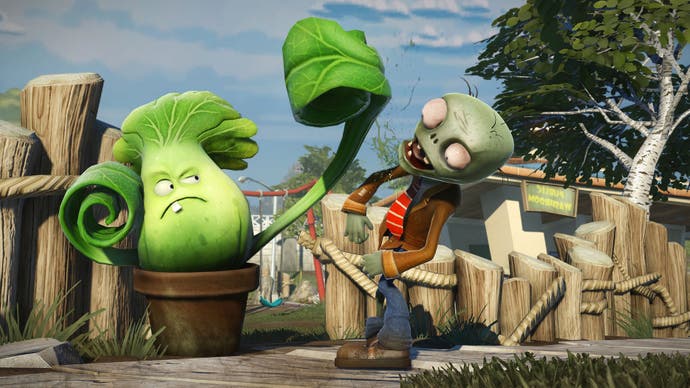Passing on the gift of games
And keeping tears at bay.
"Soulcalibur 5?" I ask.
"No. It's 'Sooouuulcalibur Fiiiive,'" my niece corrects me with added exaggeration and animated hand gestures, mimicking the announcer from the game's title screen. Part of the ceremony of playing a game with my niece and nephew are the theatrics that precede and occur during our gaming bouts. This can include a dramatic declaration of a game's title or the subsequent and inevitable screams and tears once their character dies on-screen.
I experienced this for the first time when I set up a Raspberry Pi Zero for them, one of those astonishingly small computers that's composed of a single board. Attaching all the necessary cables made this tiny setup look absurd, but they were giddy, tightly holding onto Super Nintendo-style controllers they could barely get their tiny hands around. After becoming frustrated with the speed of Sonic the Hedgehog, I thought I'd let them try the first Super Mario Bros. Following a short demonstration, my nephew wanted to take over. He couldn't time his jumps over the evil Goomba mushrooms, screamed the words "GAME OVER", glowing on the black screen, after he'd used up his lives, and ran out of the room crying towards his mother. It was calamitous.
One of the tediously fascinating ways the culture of gaming has changed over time is the way knowledge is transferred between two individuals. It used to be as simple and obvious as seeing the ways someone played in person, like the timing of their button presses as their tongues press the inside of their cheeks to fashion the most serious and focussed facial expression that will never be replicated by any future emoji design. Like many others, I had to learn the correct way to charge fireballs and flying uppercuts in Street Fighter 2 from an older sibling.

The internet changed all of that, especially at the start of the century. At first, cheat codes that were baked into games by developers - a rarity these days - were everywhere as soon as a new game was released. But then people were able to share their discoveries in the ever-increasing number of specialist forums, something that's now been replaced with Reddit and Nazi Twitter. Soon after I bought my PSP with money I'd stashed up from Eid and birthday celebrations, I knew some sort of hacking was possible from what I'd been reading online. But it wasn't until a high school teacher scribbled "PSP Hacking dot com" on a yellow post-it note did I truly learn what was possible, a site with remnants still visible today. In no time at all I had bizarre programs running on this tiny little console, like PSP Radio, an internet radio app that introduced me to strange songs like Londonbeat's 1990 hit "I've Been Thinking About You" that I still can't shake away.
Handing my nephew this original PSP was too risky a proposition given the numerous moving parts, and I couldn't fool him for much longer by giving him a controller that wasn't actually connected to a games console, a global tradition. So, over the past two years or so, I've been getting him and his younger sister to familiarise themselves with my Xbox 360 console, something I continue to use, with numerous games I still need to load for the first time ever.
The frantic brawling in fighting games is the thing that charges them up, and it's something I continue to walk around delicately. I didn't even know I had that many beat 'em up games, at least nine in total, with BlazBlue being their favourite. Yet even when I knowingly lose time and time again, I sometimes sneak in a victory, something that once again causes my nephew to kick, scream and cry, in that order. His mother and I agree it's important for him to learn how to comprehend losses and experience them without judgement, because life sure is hell full of them. She explains how it's probably linked to the effort he puts into his schoolwork, which he never falters, making it harder for him to understand failure despite mashing every button on the controller with all his might. And not being immune to trends makes things harder. Having learnt about Fortnite, I invited him to play but made the mistake of doing so when I was already in a battle. In my defense, it was literally my fourth time playing the thing and I ended by being the runner-up by cowardly hiding from everyone. (I know, I'm proud of me too.)

Thankfully, their tastes are beginning to expand. The niece often picks up the iPad to sell ice cream to friendly animal customers, which I'm fine with except it feels like a Capitalism Simulator. Or she narrates her cooperation with the villagers in Animal Crossing. However, my nephew's preferences are much more interesting due to him being older, and I'd forgotten he was already familiar with Plants vs Zombies. It's his jam and after all these years, it remains mine too. Plus, I'm much more content letting him play a game where you arrange your garden so that the plants can shoot at zombies and stop them from entering your house and eating your brain.
I never had a problem defeating these zombies, and I still have a drawing a high school friend (who, coincidentally, now works in the games industry) sent via MSN Messenger of the way he devised his own garden in the game. Just yesterday, I downloaded the game for my nephew on his own Xbox, and I helped him out a little as I looked on half-attentively, telling him where and when to grow the different plants. As the evening drew to a close and I was about to leave, I asked whether he'd saved his garden from the zombies. "Nope, they came for my brains," he replied, and continued packing for his holiday. In such a short space of time, I realise he's already learnt how to deal with his emotions much more maturely, and avoid descending into an old fit of screams and tears. And he's right. Sometimes when things get rough, it's much better to stay positive and keep planting sunflowers.

